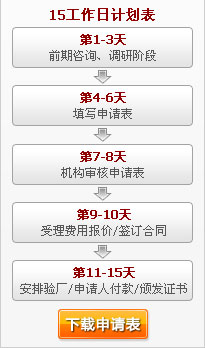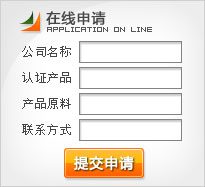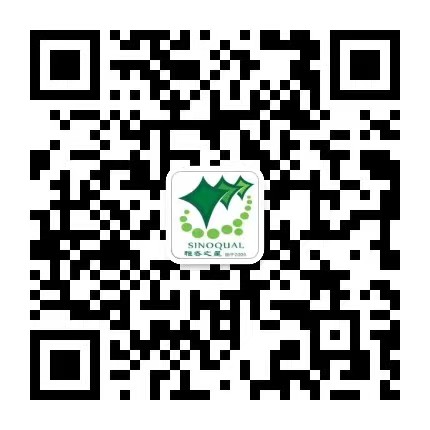马来西亚HALAL食品标准(MS1500:2009)

The Malaysian Standard entitled ‘Halal
Food: Production, Preparation, Handling and Storage – General Guide (MS
1500:2009) was developed under the Malaysian Standard Development System, under
the wing of Department of Standardization Malaysia (DSM), Ministry of Science,
Technology and Innovation.
马来西亚标准全称为“清真食品生产,准备,处理和贮藏通用指南”(MS1500:2009),发展自马来西亚标准发展体系,是马来西亚科学,技术和创新标准化部的支系。
The Malaysian Standard is one of five
government initiatives in realizing the dream of establishing Malaysia as the
center of halal food.
马来西亚标准是政府未来建立马来西亚清真食品中心的五个举措之一。
The standard was developed by the National
Industrial Standardization Committee related to Halal matters(ISC I), and is
represented by multiple organisations including JAKIM, that acts as the
Chairman for the Technical Committee. Please refer to Appendix 1 for an
overview of the standardization development system in Malaysia and how ISC I
contributes to this system.
标准由国家工业标准化委员会有关清真事项建立,被许多组织像担任技术委员会主席的JAKIM认可。详情请参考附件一马来西亚标准发展体系概括和ISCI如何对体系做贡献。
This standard contains practical guidelines
for the food industry on the preparation and handling of halal food (including
nutrient enhancers). It aims to set the ground rules for food products or food
businesses in Malaysia. It will be used by JAKIM as the basis for certification
whilst other requirements will also be taken into account to complete the
certification process.
这个标准包含了清真食品工业制备和处理的操作指南(包括营养强化)。它的目标是建立一个马来西亚食品生产和贸易的基本规则。将来会被JAKIM用来做基本认证,同时其他的要求也需考虑到完成认证过程。

Refer to Appendix 2 for a summary of the
Malaysian Standard development pertaining to halal food.
参考附件二马来西亚标准发展有关清真食品的总结
This document has undergone the process
required by international standardization agencies such as; International
Standardization Organization (ISO), where the international standardization
development system is based on the agreement of all vital parties,including
governments, private sectors, NGO's, researchers and professional bodies.
Malaysia (DSM) uses the same ISO policy.
本文件已通过国际标准机构的要求程序,比如ISO,国际标准体系是建立在重要部门的共识上,包括政府,私人部门,NGO,研究中心和专业机构。马来西亚和ISO使用共同的政策。
Food and Beverage
Aim
This guideline is meant to guide and serve as a reference point for any authority responsible for halal certification to determine whether a product is halal or not. This guide also aims to provide entrepreneurs and the public (Muslim or non Muslim) with an understanding and clarification of the aspects of halal according to principles that encompass preparation, processing, storage, packaging, handling and transportation of food, beverage and consumer goods applicable to muslims.
本指南旨在引导和服务清真认证决定一个产品是不是清真的参考点。它也提供给企业家和公众关于清真的原则依据,包含面向穆斯林的食品,饮料消费品的制备,加工存储,包装,操作程序。
Source Of Food And Beverage
The main sources of food and drinks for humans are, animals, plants, natural substances, chemicals and micro-organisms of which some are halal and some are not.
针对人的食物和饮料主要来源于有些清真的和有些不清真的动物,植物,自然物质,化学和微生物

Land Animals陆生动物
All land animals are deemed halal to be consumed except;
· Animals not slaughtered in accordance with Halal principles.
· Swine.
· Dog.
· Animals which have fangs or tusks for hunting other predators such as tigers, bears, elephants, rhinoceros, cats and other similar animals.
· Birds with talons, sharp beaks, birds of prey such as eagles, owls and others similar.
· Animals that are sanctioned by Islam to be killed like rats, scorpions, crows, centipedes, snakes and the like.
· Animals which are forbidden in Islam to be killed such as ants, bees, woodpeckers, swallows and spiders.
· Animals which are considered as repulsive (foul) in Islam such as lice, flies, maggots and the like.
· Animals that live on land and in water (both worlds), such as frogs, crocodiles, turtles, seals and the like.
· All plants and animals derived through biotechnology are deemed halal except for those produced using the DNA from any one of the swine or dog species.
所有的陆生动物被认为是清真的,除了以下几种情况
· 没有按照清真的方式屠宰的动物。
· 猪
· 狗
· 有尖牙或者用獠牙捕食的食肉动物,比如老虎、熊、大象、犀牛、老鼠和其他类似的动物。
· 有爪或者锋利的尖嘴的鸟类,猛禽比如鹰、猫头鹰等类似的鸟类。
· 在伊斯兰教允许被杀害的动物、比如老鼠、蝎子、乌鸦、蜈蚣、蛇等。
· 在伊斯兰教是禁止杀害的动物比如蚂蚁、蜜蜂、燕子、啄木鸟和蜘蛛等。
· 在伊斯兰教里被认为是丑陋的动物,比如虱、蝇、蛆等。
· 两栖类动物,比如蛙类,鳄鱼,海龟,海豹等等。
· 所有源自生物技术的植物和动物被认为是清真的,DNA源自任何狗类和猪的的除外

Water Animals水生动物
Water animals are animals which live in water only intrinsically. They are clean and can be eaten, except for those that are poisonous, intoxicating and harmful to human health.
一直生活在水中的动物,干净并且可食的,除了那些有毒、使人麻醉、对人类有害的。
Plants植物
All plant types and their products are deemed halal except for those which are poisonous, intoxicating, pose a danger to human health and biotechnology produced plants using DNA derived from forbidden substances.
所有的植物和他们的产品都是清真的,除了有毒、使人麻醉对人的健康有害的和通过生物技术生产的DNA源自被禁止的物质的。
Beverage饮料
All types of water are deemed halal for drinking except those that are poisonous, intoxicating, harmful to human health and polluted by wastes.
所有类型的水被认为是清真的,除了那些有毒、使人麻醉、对人的健康有害和被污秽污染的水
Natural Substances自然物质
All natural substances such as water, minerals and others are permissible unless polluted by sewage, are toxic, intoxicating and dangerous to health.
所有的自然物质比如水、矿物质和其他的都是被允许的,除了有毒有害使人麻醉的

Cosmetics 化妆品

Clothing and Equipment服装和设备
· Clothing and equipment derived from plant sources are permissible.
· Materials and clothing made from animal fur can be used except for pig and dog fur.
· Clothing materials made from bones, horns, claws and teeth of animals that are halal when slaughtered according to Halal law are permissible.
· Clothing and tools that are made from animal skin (except swine and dog) and have been cleansed according to Halal law are permissible.
· 服装和设备源自植物原料是被允许的
· 服装原料来自动物毛皮实可以用的除了猪和狗的毛皮。
· 服装原料来自按照清真的原则屠宰的动物的骨头、角、爪和牙齿是被允许的。
· 服装和工具用动物的皮制作的(除了猪和狗)并且根据清真的要求清洗的也是被允许的。




 微信咨询:
微信咨询:
 电话咨询:
电话咨询: